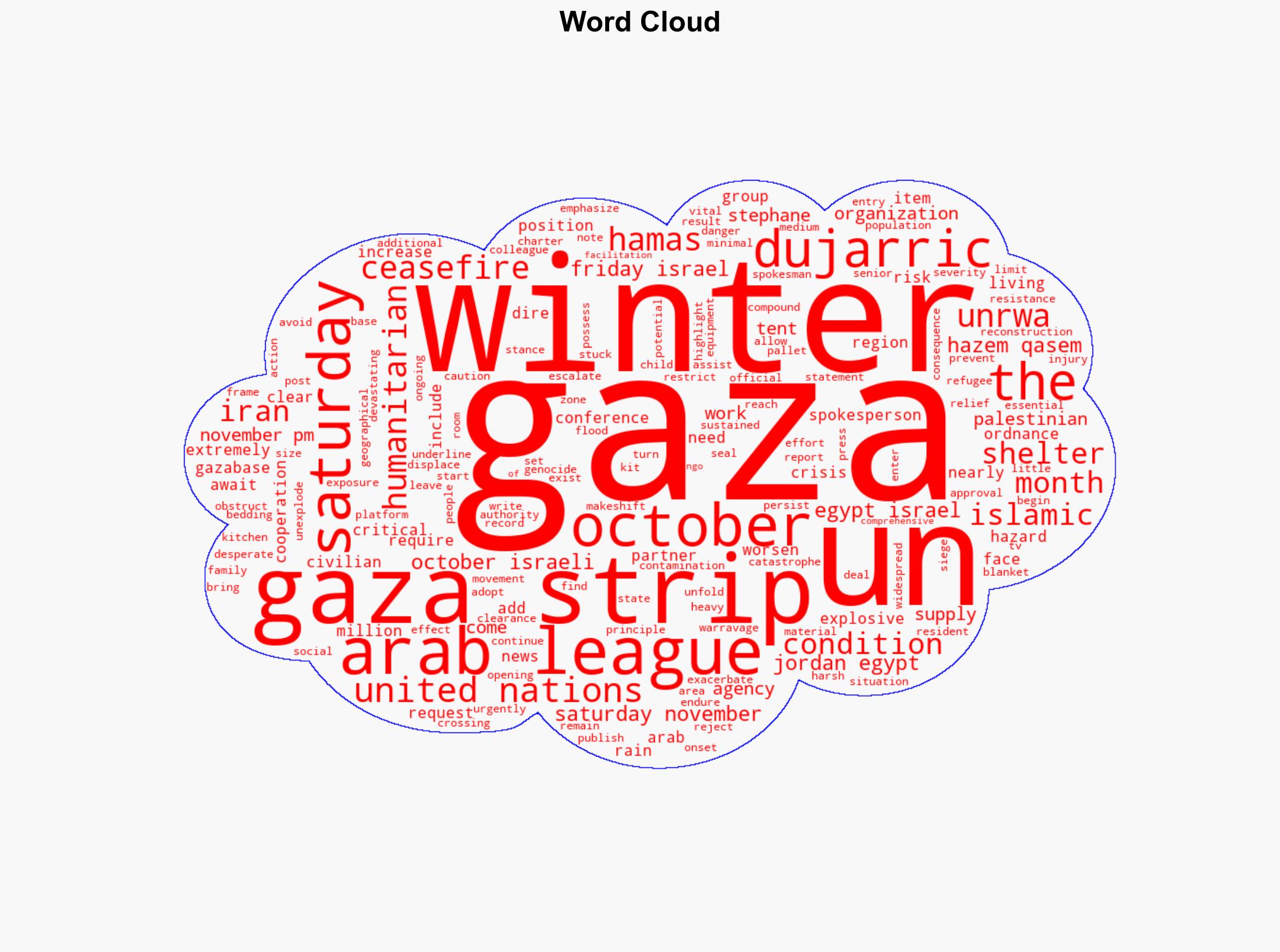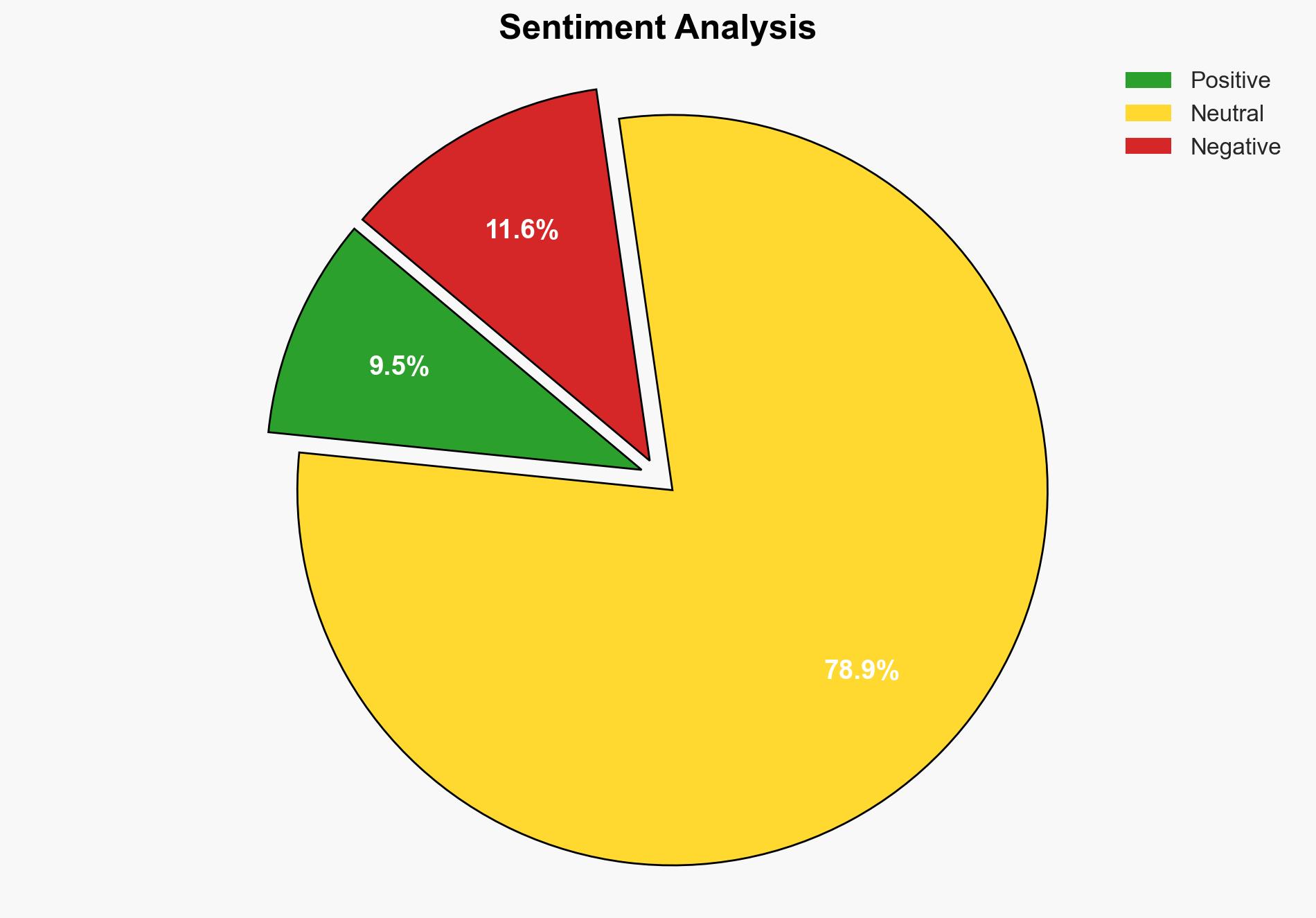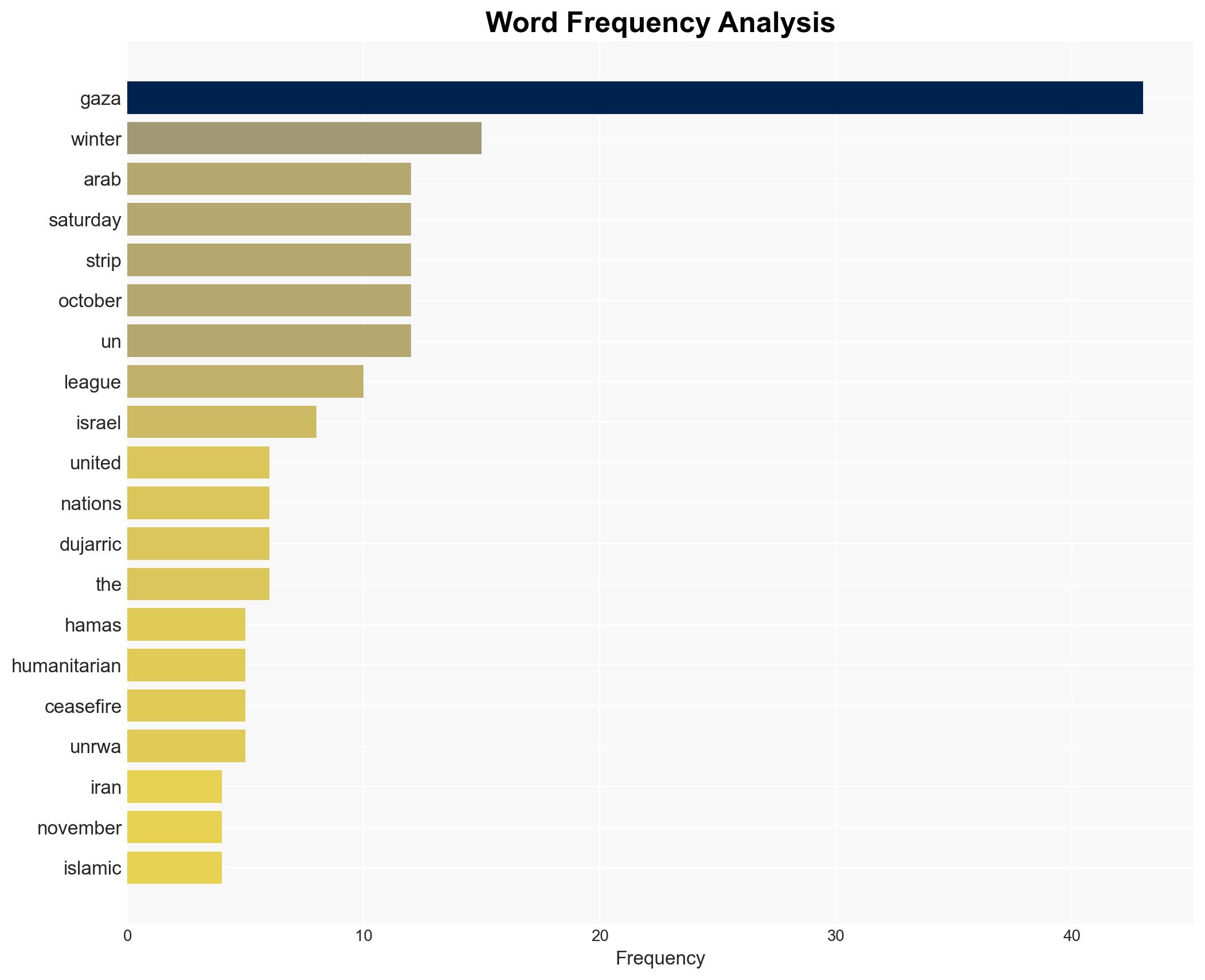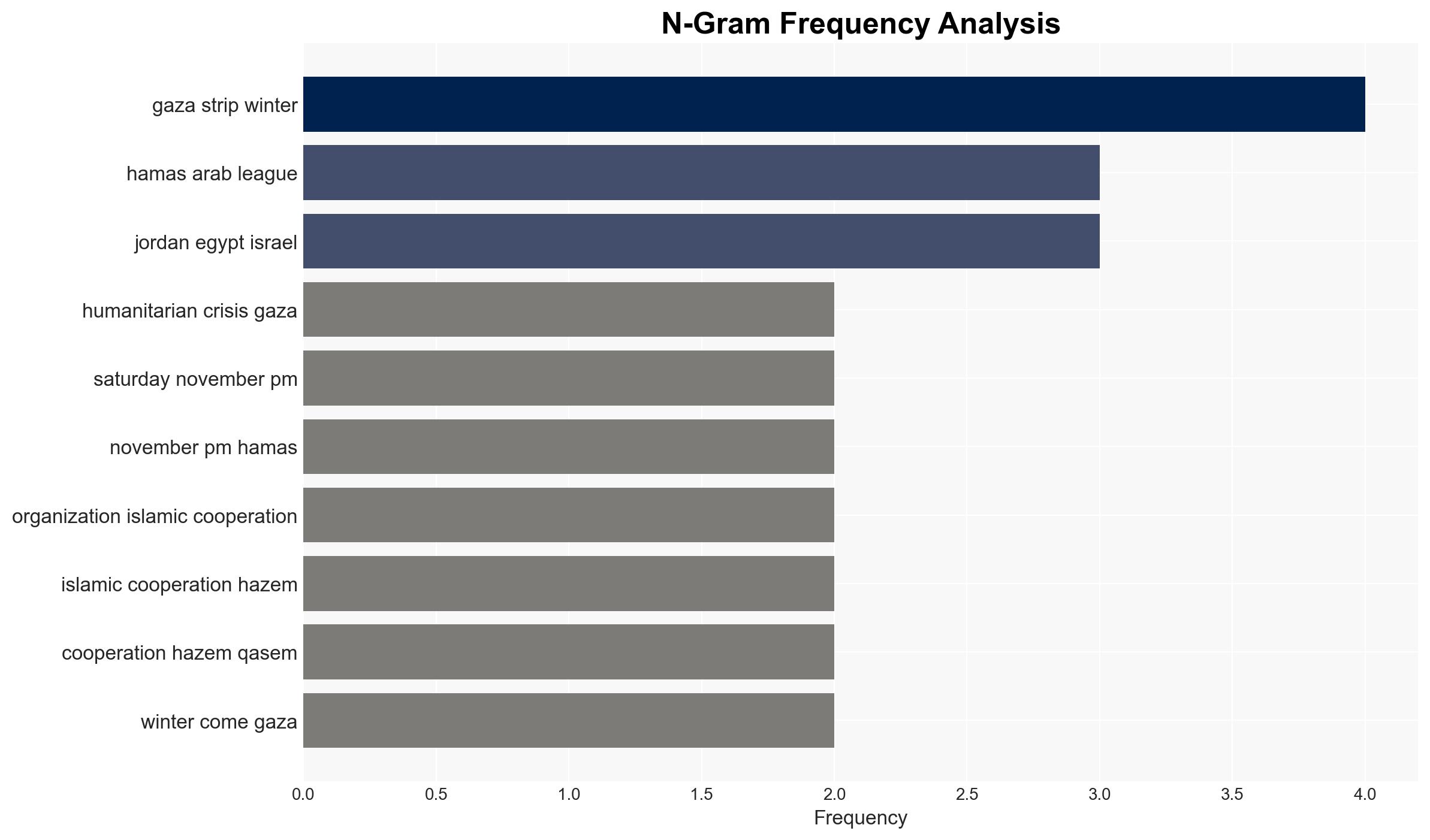Hamas calls on Arab League adopt clear position on humanitarian crisis in Gaza – Globalsecurity.org
Published on: 2025-11-16
AI-powered OSINT brief from verified open sources. Automated NLP signal extraction with human verification. See our Methodology and Why WorldWideWatchers.
Intelligence Report:
1. BLUF (Bottom Line Up Front)
The most supported hypothesis is that Hamas’s call for the Arab League to adopt a clear position on the humanitarian crisis in Gaza is primarily a strategic maneuver to increase international pressure on Israel and gain broader regional support. This is assessed with moderate confidence due to the complexity of regional politics and the potential for misinterpretation of intentions. Recommended actions include diplomatic engagement with key Arab League members to understand their positions and potential influence on the situation.
2. Competing Hypotheses
Hypothesis 1: Hamas is seeking to leverage the Arab League to increase diplomatic pressure on Israel and gain humanitarian aid access.
Hypothesis 2: Hamas’s call is primarily a public relations effort to shift blame for the humanitarian crisis onto Israel and gain sympathy from the international community.
Hypothesis 1 is more likely given the current geopolitical context, where regional actors are increasingly vocal about humanitarian issues, and Hamas’s need for tangible support is critical. Hypothesis 2, while plausible, is less supported due to the lack of direct evidence of a coordinated media campaign beyond typical rhetoric.
3. Key Assumptions and Red Flags
Assumptions include the belief that the Arab League has the capacity and willingness to influence the situation in Gaza, and that Hamas’s statements are reflective of its strategic goals rather than mere rhetoric. Red flags include potential bias in reports from state-affiliated media and the possibility of deceptive narratives from involved parties to manipulate international perceptions.
4. Implications and Strategic Risks
The humanitarian crisis could escalate tensions in the region, potentially leading to increased political pressure on Israel from neighboring countries. There is a risk of cyber and informational warfare as parties attempt to control the narrative. Economic sanctions or boycotts could be considered by some Arab League members, affecting regional stability.
5. Recommendations and Outlook
- Engage in diplomatic dialogues with key Arab League members to assess their stance and potential actions.
- Monitor media narratives and social media for shifts in public opinion and potential misinformation campaigns.
- Best-case scenario: Increased humanitarian aid access to Gaza with minimal political fallout.
- Worst-case scenario: Escalation of regional tensions leading to broader conflict.
- Most-likely scenario: Continued diplomatic pressure with limited immediate change in the humanitarian situation.
6. Key Individuals and Entities
Hazem Qasem (Hamas Spokesman), Stephane Dujarric (UN Spokesperson), Arab League, United Nations, UNRWA.
7. Thematic Tags
Regional Focus, Middle East, Humanitarian Crisis, Regional Politics, International Relations
Structured Analytic Techniques Applied
- Causal Layered Analysis (CLA): Analyze events across surface happenings, systems, worldviews, and myths.
- Cross-Impact Simulation: Model ripple effects across neighboring states, conflicts, or economic dependencies.
- Scenario Generation: Explore divergent futures under varying assumptions to identify plausible paths.
Explore more:
Regional Focus Briefs ·
Daily Summary ·
Support us
·





